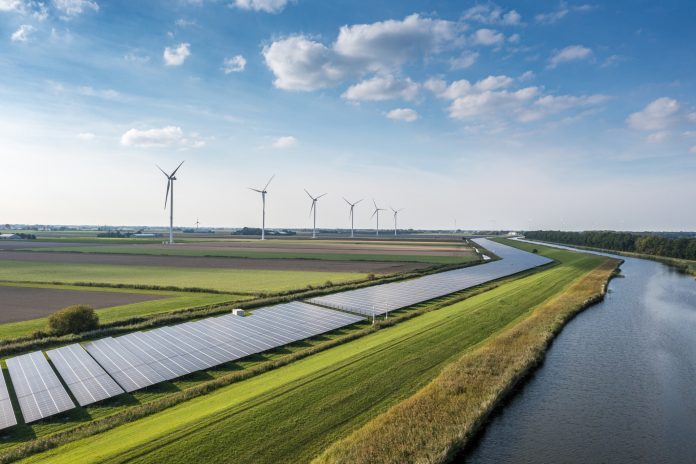On 25 January 2024, the Sustainable Solutions Development Network (SDNS), alongside the EESC, presented the Europe Sustainable Development Report 2023/24 (ESDR) and announced that when concerning the sustainability transition we can leave no one behind
The Europe Sustainable Development Report 2023/24 (ESDR)
This fifth edition of the report reveals that decisive action must be taken in the European Union to avoid environmental and social ‘tipping points’ and to maintain the promise of achieving the Sustainable Development Goals (SDGs) of the 2030 Agenda and the objectives of the Paris Climate Agreement.
The report highlights that, at the current rate, a third of the SDG targets will not be achieved by the EU by 2030; there are significant differences in that figure across European countries, ranging from a quarter in Northern and Western Europe to around half in Southern Europe and Central and Eastern Europe on average.
In particular, the report underlines stagnation and reversal in progress in many European countries on social targets, with growing issues around access to and quality of services for all, as well as poverty and material deprivation driven at least partly by the multiple crises since 2020.
Sustainability transition: ‘Leave no one behind’
Even so, ‘leave no one behind’ is the central, transformative promise of the SDGs. It represents the unequivocal commitment of all UN Member States to eradicating poverty in all its forms, ending discrimination and exclusion, and reducing the inequalities and vulnerabilities that leave people behind and undermine the potential of individuals and of humanity as a whole.
That’s easy to agree on and complex to achieve. Putting the commitment to ‘leaving no one behind’ into practice at regional and national levels requires placing the social dimension and the search for well-being and equity at the heart of policy-making. We are convinced that moving forward on the EU’s just transition policy framework will trigger progress on social targets. The EESC has recently provided clear recommendations on this, in its opinion Advancing the EU’s just transition policy framework: what measures are necessary requested by the Belgian presidency of the Council of the EU.
We must not forget that climate and environmental policies must go hand in hand with social and economic policies.
We must not forget that climate and environmental policies must go hand in hand with social and economic policies. The recent farmers’ demonstrations all over Europe are a clear alarm signal. But we must be careful to read this phenomenon correctly. It is not less climate ambition that we need, but more social ambition. It is not backtracking on the European Green Deal (Europe’s bold attempt to become the world’s first climate-neutral continent by 2050), but more solidarity and more Europe. The green transition must be social, or it simply will not happen. The EESC has been calling since the beginning precisely for this: a European Green and Social Deal.
‘Leave no one behind’ also means acting accordingly at global level. The ESDR reveals that, all over the world, the international financial architecture is failing to channel global savings to SDG investments at the needed pace and scale, which is leading to a reversal in SDG progress in many parts of the world, especially in the poorest and most vulnerable countries. We also need to curb negative international spillover – meaning the impact that EU consumption and production patterns have on the rest of the world.
Finally, ‘leave no one behind’ means listening to civil society and ensuring structured participation in policy-making. That’s why the EESC will keep calling on the Commission to set up new permanent mechanisms for structured and meaningful engagement with civil society, including young people.
To deliver these messages loud and clear to the new leaders of the EU, as part of a large group of scientists, experts, and practitioners from 25 European countries, we have launched a joint Call for Action on the SDGs complementing the ESDR, with 10 priority actions to lay the foundations for a new European Deal for the Future. These priority actions are jointly directed at political parties, the next European Parliament, the next European Commission, the European Council and the Member States.
2024 gives us a new opportunity to make things right. In June 2024, EU citizens will not only elect the new European Parliament and chart the way to the formation of the next European Commission, both of which will be in charge until 2029 but also lay the foundations for the future of the EU and its global role well into the next decade. The UN ‘Summit of the Future’ in September 2024 will be a precious moment to reinvigorate feeble multilateralism and to formulate a Pact for the Future that will help advance the SDGs by 2030 and beyond.
We only have six years ahead of us to advance and accomplish the 2030 Agenda. This is not the time for backtracking. It is time to accelerate action and take everyone along in this journey.
This piece was written and provided Peter Schmidt, President of the EESC’s Section for Agriculture, Rural Development and the Environment (NAT)











